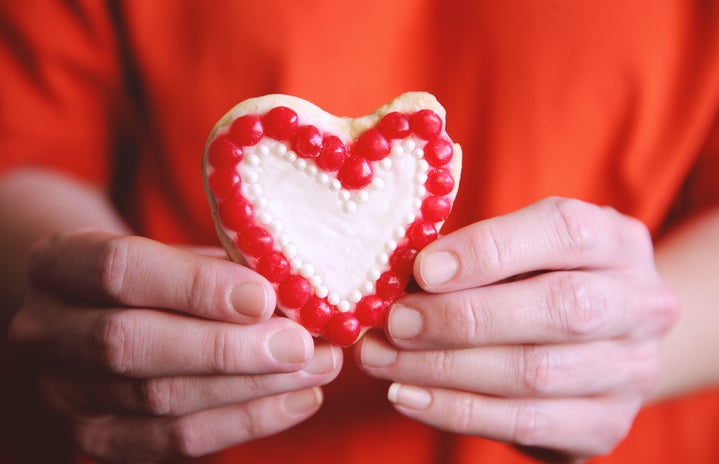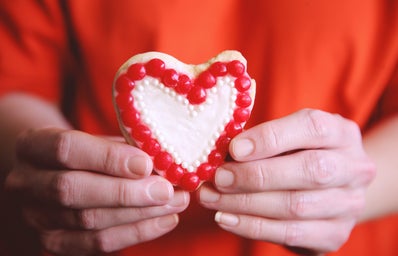*Disclaimer: this article is written from my own perspective as a cis woman and focuses on relationships with cisgender men and women, since that is solely what my personal experience has been with. I’m sure experiences vary greatly in relationships with people who identify differently. It is not my intention to shadow or disregard the validity of transgender or genderfluid individuals. Please keep in mind this article is simply regarding my own personal experiences and not the experiences of the bisexual community as a whole, as these experiences vary from person to person.*
What’s the difference between dating men and women? Well, if you ask anyone in the LGBTQ community, you’ll get a hundred different answers. It’s all subjective and it all varies depending on who the person is. But one of the first things I’m sure everyone will tell you is that the biggest difference is simply how different people view and treat you. I, being bisexual, have experienced both sides—straight and lesbian relationships—so I’ve witnessed the real difference first-hand. Though I’ve always known there was prejudice and have experienced it in every one of my same-sex relationships, these things have actually come to my attention so much more after being in a straight relationship for the first time. It made me realize how much I was used to the feeling of being looked at differently in public when I was with my significant other in past same-sex relationships.
Lucky for me, my friends and family—both in the LGBTQ community and not—are all very supportive of me regardless of who I’m dating. They just want me to be happy and find love, whether that’s with a woman or a man. Not every bisexual person has that luxury.
Many bisexual people experience hypocritical tendencies from their friends who are also a part of the LGBTQ community. We’re looked at differently when we’re in a heterosexual relationship—almost like we’re not as valid in the community because we’ve fallen for someone of the opposite sex. But that doesn’t change who we are inside. Being in a straight relationship doesn’t strip us of our bisexuality. We’re still going to be bisexual, and we’re still just as valid to the community whether we’re in a hetero or homosexual relationship.
The difference in treatment that I personally experience revolves more around the reactions of others outside of my community, family, and friends—in normal, everyday conversations. Bringing up my boyfriend in conversation with an acquaintance is nothing out of the ordinary, and they don’t ever bat an eye. While in a relationship with a woman, if I were to bring them up in a casual conversation, I would sometimes get odd looks or the other person in the conversation would become visibly uncomfortable just because I said, “my girlfriend.” This wasn’t always the case, of course, especially with the younger generations becoming more accepting. But, it’s still something I’ve definitely noticed changes when you’re dating a man.
Another big thing I’ve noticed is the way people react to PDA is much different depending on if you’re with a man or woman. This one kind of blends with the previous point. PDA, and the way it’s received and makes me feel, has a huge difference in hetero vs. homosexual relationships. This is also one of the very first things I noticed, and it really opened my eyes to how accustomed I’ve gotten to the stares of strangers. I had become so used to the uncomfortable stares that I hardly even thought about it anymore—until I started dating my boyfriend. I still catch myself thinking about this a lot. Holding my boyfriend’s hand or giving him a quick peck in public is, again, no big deal to the eyes of the public—just another “normal” couple running errands or out on a date. Holding a woman’s hand or, dare I say, kiss her in public was a whole other story. People would stare and glare at us. We could feel their eyes on us anywhere we went. That just became an inevitable part of showing PDA in a homosexual relationship. Yes, in the time we’re in, it’s definitely not as bad as it used to be for older generations. But, the prejudice is still there—just more silent.
The public validity of your relationship when in a same-sex relationship is another issue that is glossed over a lot. In straight relationships, it’s obviously no big deal. You tell someone about your boyfriend and they immediately understand you’re in a relationship. Many people who have only been in straight relationships don’t realize this isn’t always as straight-forward and easy for others. If you’ve ever been in a same-sex relationship, though, I’m sure you can relate when I say everyone mistakes you for being best friends instead of a couple. It really hurts in situations when you’re talking about your relationship and happen to say, “my girlfriend” in a conversation and people assume you mean “girl friend.”
Ironically, being in a straight relationship after years of being in only same-sex relationships has opened my eyes to these issues so much more than before. It makes me realize how many things can be taken for granted when you’re in a straight relationship, and how much prejudice we, the LGBT community as a whole, face on a daily basis, even when it’s not as apparent at first.
Though lots of issues regarding the prejudice and discrimination against same-sex relationships—and any LGBTQ relationships, at that—have been getting slightly better, there’s still a lot of work to do. We should feel comfortable being with whoever we fall in love with, regardless of their gender and sex, and not have to experience such prejudice, no matter how silent it may seem at times.

